FOR SHIP OWNERS, MANAGERS AND OPERATORS
FuelEU is Here
OceanScore is Ready to Support You
FuelEU will enter into force on Jan 1, 2025 and is the by far the most complex environmental regulation affecting shipping so far. Potentially severe penalties, new definitions, complex fuel choices, investment decisions.
OceanScore:
- Helps you understand your financial exposure, vessel by vessel, fleet by fleet
- Supports optimizing operational and technical measures to reduce this exposure with total cost of ownership perspectives
- Facilitates cross department engagement and processes between managers, owners and charterers
- Allows to compare and plan impact of banking, borrowing, pooling, penalty payments
- Provides cost efficient access to compliance pooling options
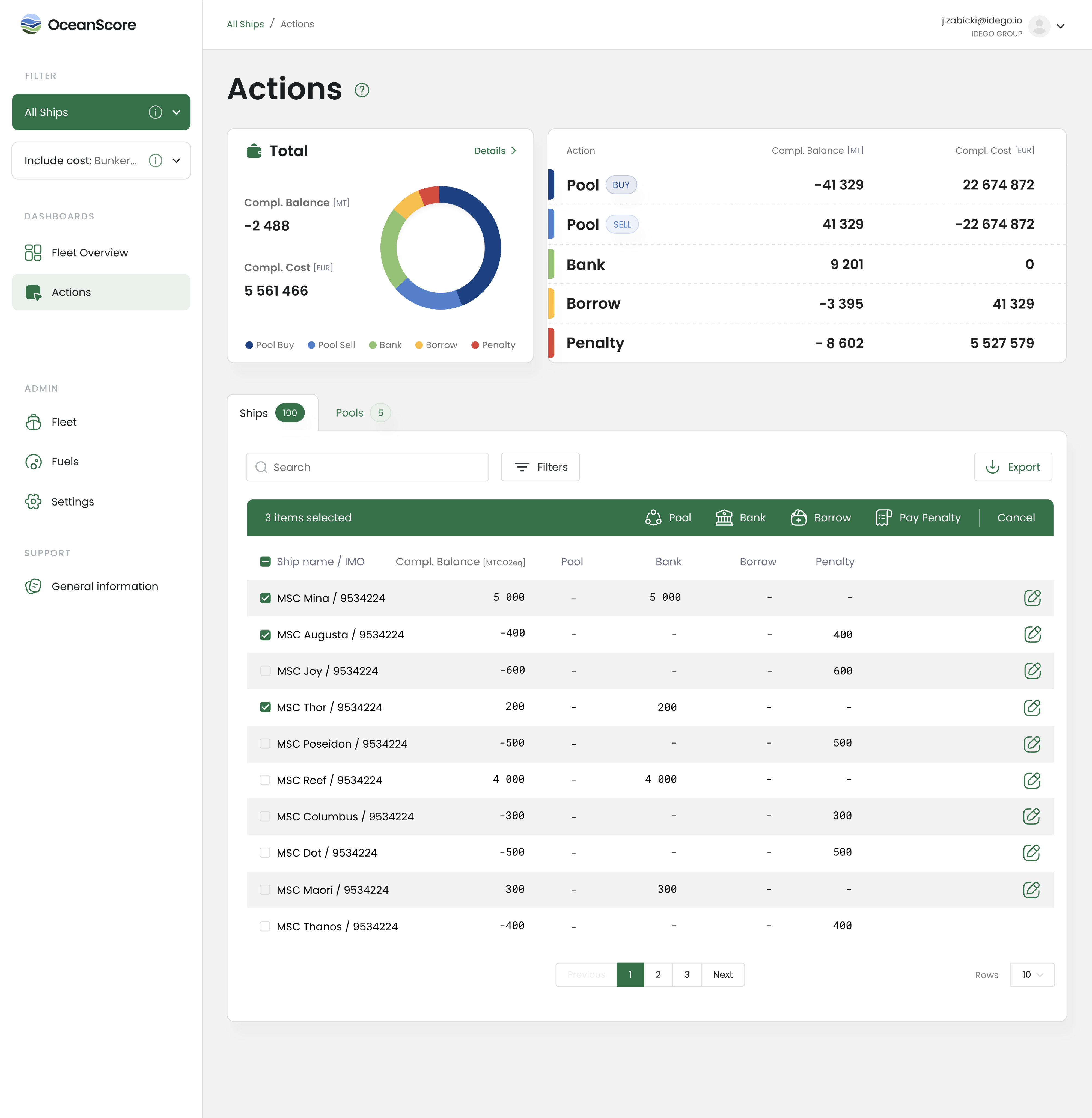
TRUSTED BY OUR CLIENTS AND PARTNERS
What is FuelEU Maritime?
FuelEU Maritime is a regulatory framework adopted by the EU to enhance the share of renewable and low-carbon fuels in the maritime industry. Effective from January 1, 2025, this regulation imposes strict well-to-wake GHG emission intensity requirements on ships over 5000 GT operating in as well as to and from the EU. By 2030, passenger and container ships must also connect to onshore power at major EU ports.
The three main objectives are:
Reduce the GHG intensity of the energy used on board.
Use of onshore power supply (OPS) in main European ports.
Incentivize the uptake of renewable and sustainable fuels.
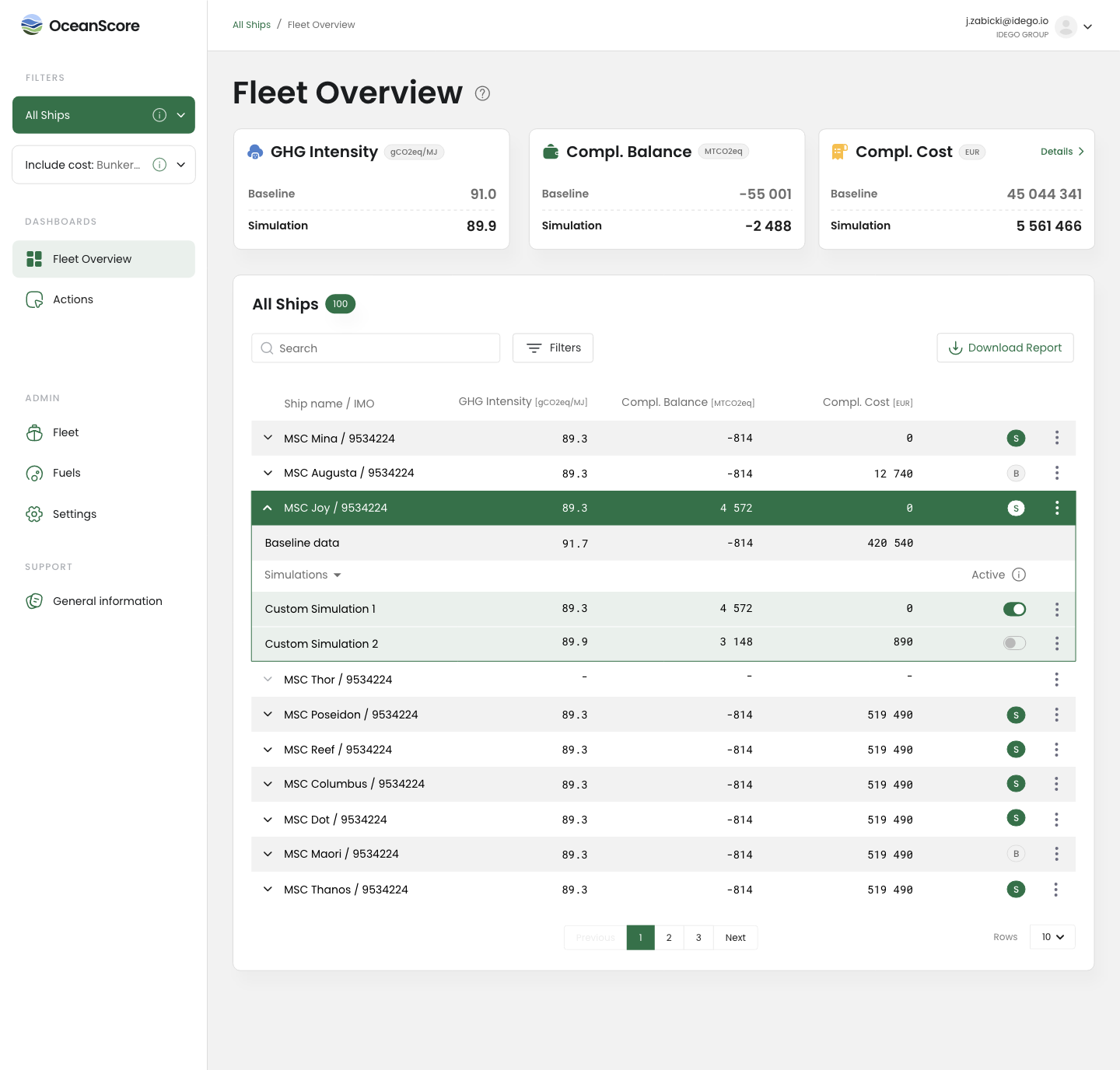
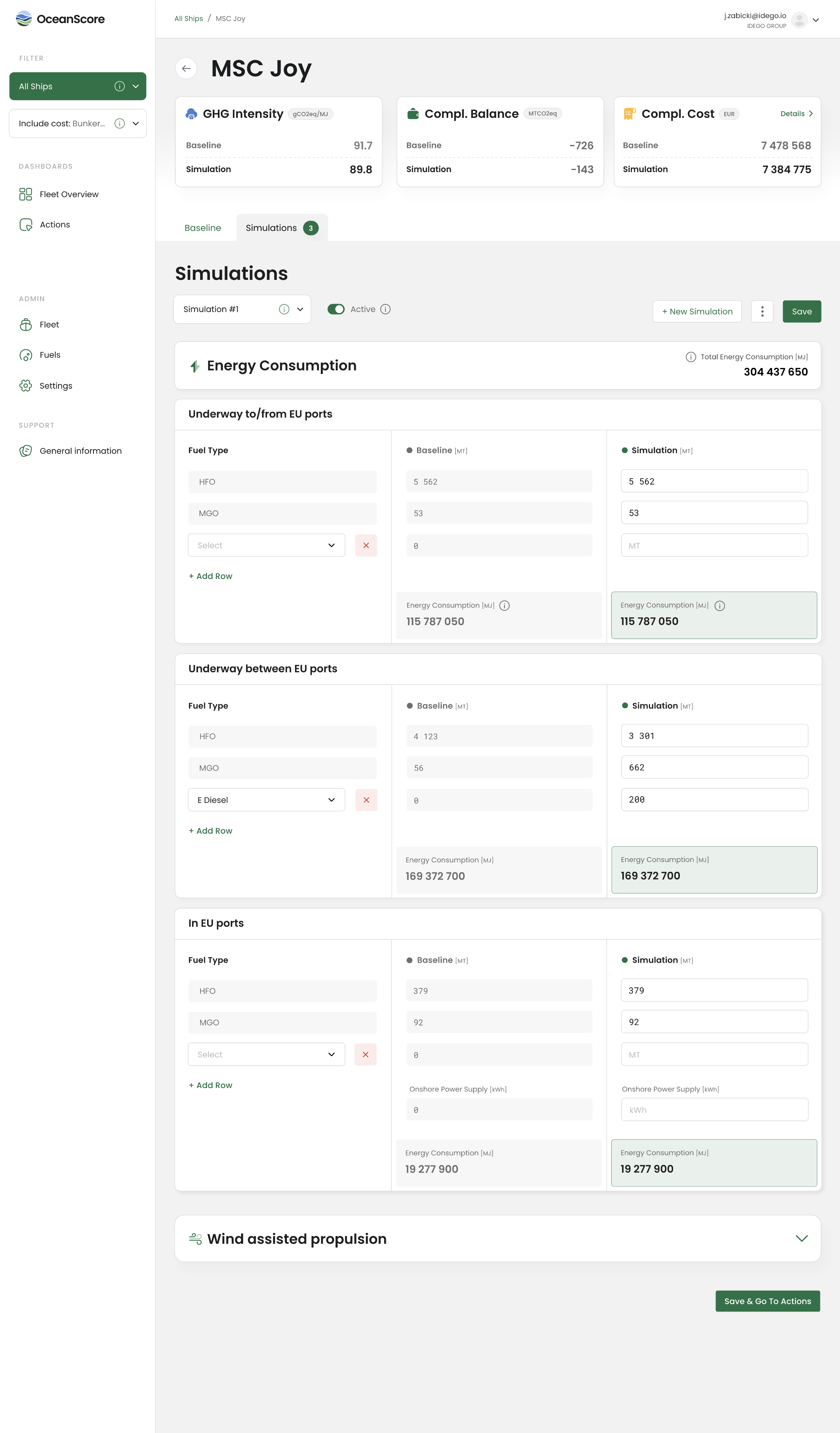
How Does FuelEU Maritime Work?
FuelEU Maritime establishes annual average GHG intensity requirements for ships, measured in grams of CO2 equivalent per megajoule (gCO2e/MJ) of energy used. This well-to-wake approach accounts for
emissions from fuel extraction, production, and transportation, as well as onboard energy use and it includes the effects of methane and nitroxide as well.
Progressive Reductions
The target for 2025 is 89.3g (based on a reduction of 2% vs 2020 base values of 91.16g)
Initial GHG Intensity Benchmark
Enforced reductions start at 2% in 2025, increasing to 6% in 2030, and culminating in an 80% reduction by 2050.
Requirements Based on Energy Use
EU/EEA Voyages
100% of energy used on voyages between EU ports or EEA must meet the GHG intensity requirements.
International Voyages
50% of energy used on voyages to or from the EU or EEA must comply.
Special discounts
Apply for wind assisted propulsion, sailing in ice, ice class, RFNBOs (e-fuels, not yet widely available) and onshore power supply
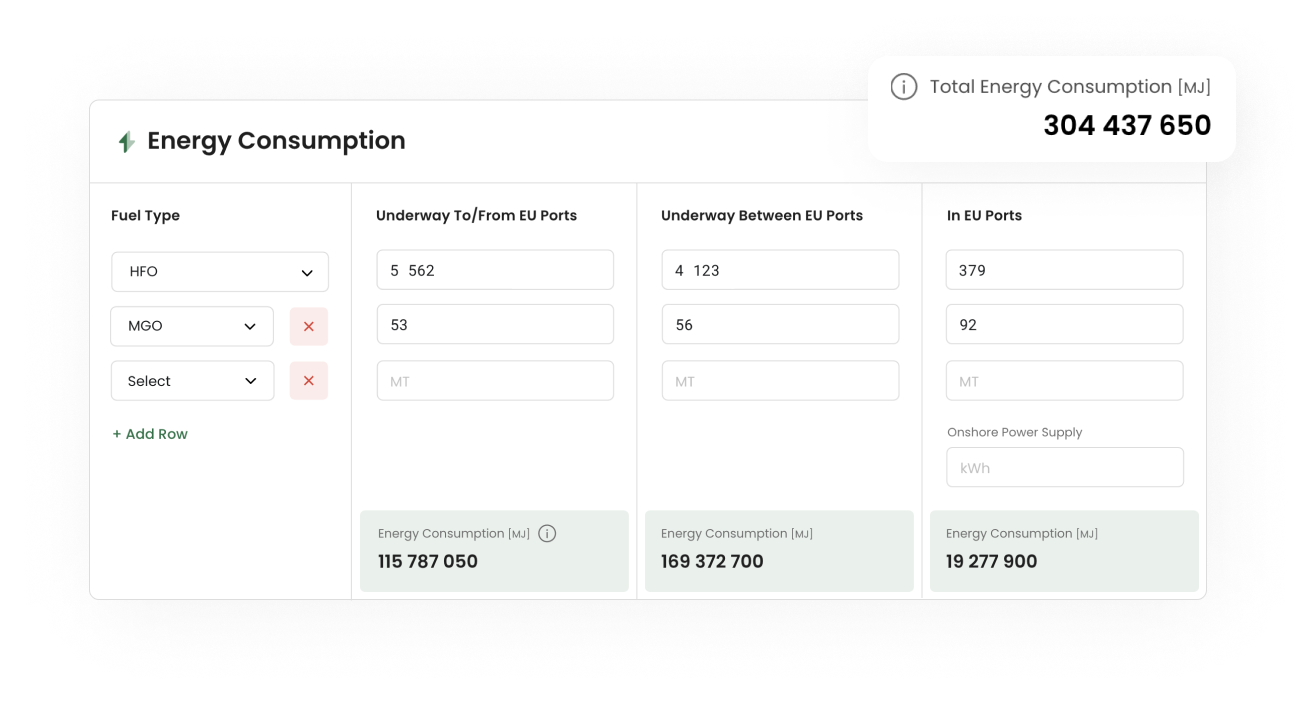
What do you need to do as a ship owner or manager?
To ensure compliance with FuelEU Maritime, shipowners need to take the following steps:
- Submit a Monitoring Plan
Outline how emissions will be monitored and reported for each ship by August 31, 2024. - Start Reporting
From January 1, 2025, report key data, including fuel consumption and CO2 emissions. - Verification and Reporting
Have individual ship’s FuelEU reports verified within one in case month of a company change and annually for the first time by January 31, 2026. - Compliance Balance Approval
Ensure compliance balance is approved in the FuelEU database by April 30, 2026. - Obtain FuelEU Document of Compliance
Secure this document by June 30, 2026, along with meeting the penalty payment deadline.
FOR SHIP OWNERS, MANAGERS AND OPERATORS
More details...
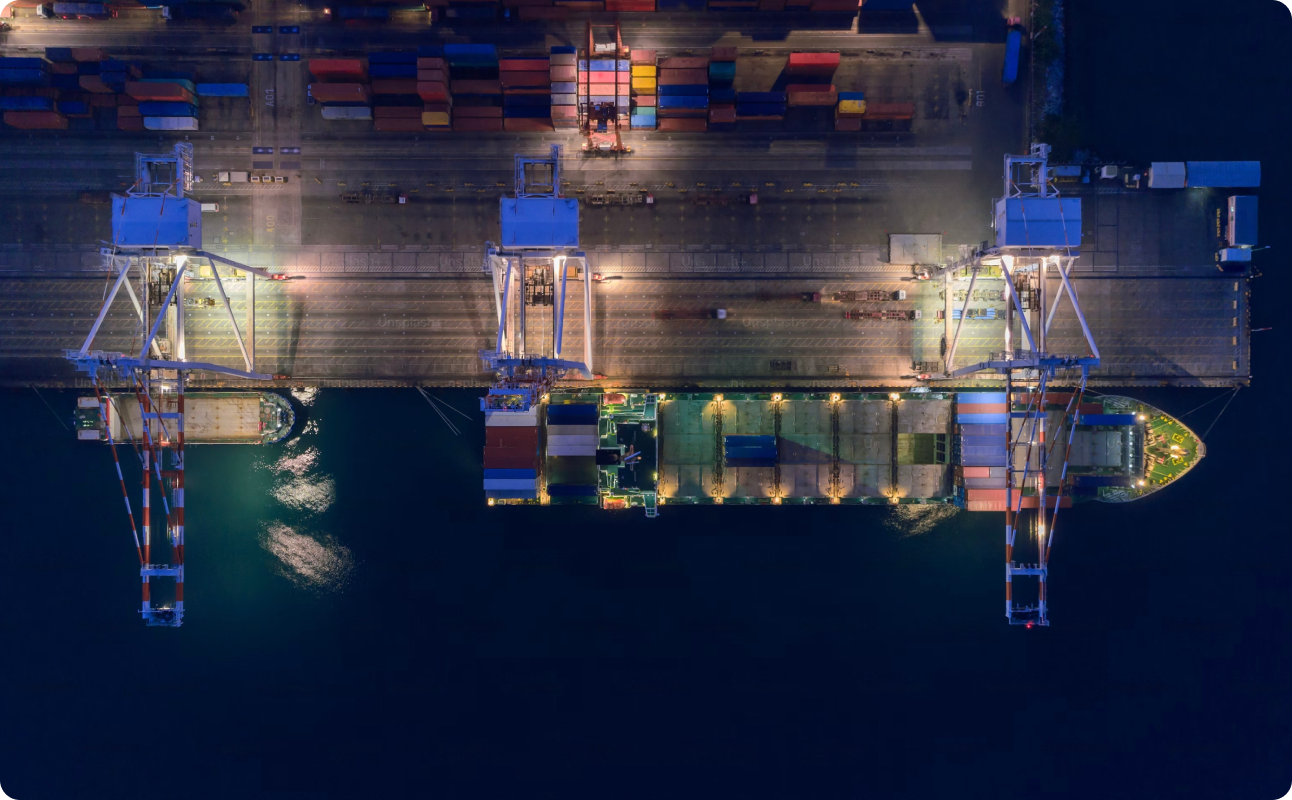
Onshore Power Requirements
To incentivize zero-emission port stays, passenger and container ships will be required to connect to onshore power supplies at major EU ports from 2030 and all EU ports with onshore power supplies from 2035. This requirement does not apply to short stays (less than 2 hours) or if the ship uses zero-emission technology while at berth. Non-compliance will result in financial penalties. Until 2030, there is a special discount on their use as it is assumed that OPS has zero emissions, independent of the energy source.
Renewable Fuels of Non-Biological Origin
The usage of RFNBOs, including e-diesel, e-methanol, e-LNG, e-hydrogen, e-ammonia, e-LPG, and e-dimethyl ether (DME), will be incentivized from January 1, 2025, to December 31, 2033. If the share of RFNBOs is less than 1% of all fuel usage in scope of the regulation between January 1 and December 31, 2031, a sub-target will be established from January 1, 2034, to mandate RFNBO usage.


Flexibility Compliance Mechanisms
FuelEU Maritime offers flexibility mechanisms such as banking, borrowing, and pooling to help shipowners manage compliance and minimize financial penalties.
Banking
Surplus compliance in one year can be banked for future use.
Pooling
Surplus compliance from one ship can be shared with under-compliant ships within or between fleets.
Borrowing
Compliance surplus can be borrowed from the subsequent reporting period with an additional 10% penalty.
Penalties for Non-Compliance
Non-compliance with FuelEU Maritime regulations will result in penalties, calculated based on the regulation’s formula. Repeated offenses may lead to additional consequences, including expulsion orders.
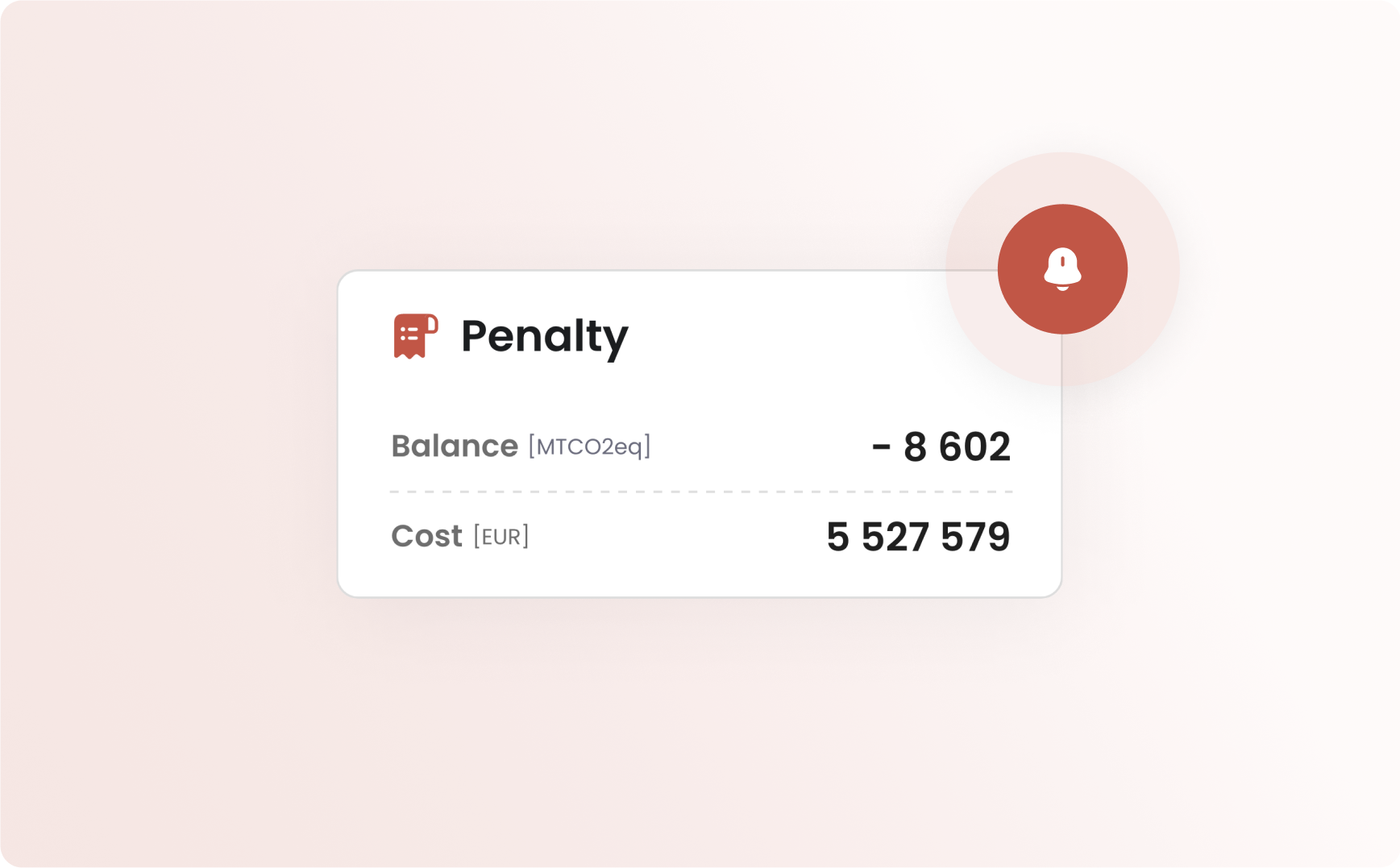
Open issues
FuelEU is a complex regulation. But similar to the implementation of EU ETS, many open issues remain to be resolved with just months to go. There are regulatory questions still not resolved, some of them are critical for the implementation. At the same time, FuelEU clauses are still being developed by BIMCO and it should not be taken for granted that these mirror the EU ETS clauses. OceanScore is close to these discussions and will implement whatever results in our solutions fast.
How OceanScore can help
OceanScore offers a comprehensive suite of solutions and services designed to support shipowners, managers and operators in simulating, calculating and streamlining the commercial operations around each complex FuelEU requirement. This will include preparing annual budgets, supporting strategic decisions on fuel choices and investments, monitoring FuelEU compliance balances and simulating different courses of action towards year end,…
FuelEU is set to transform shipping with sustainability at its core.
OceanScore is here to support your own transition with confidence.

































